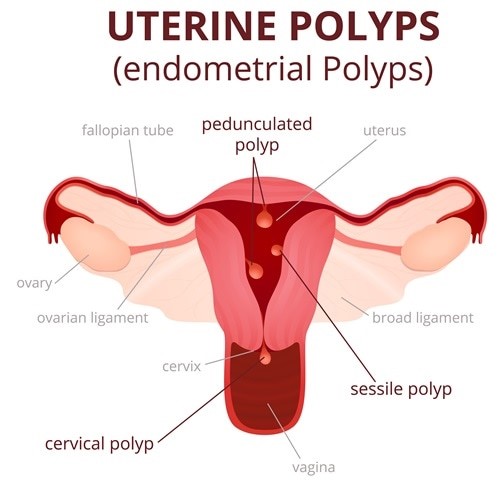A nurse in the ambulatory surgery center is providing discharge teaching to a client who had a dilation and curettage (D&C) following a spontaneous miscarriage. Which of the following should be included in the teaching?
Vaginal intercourse can be resumed after 2 weeks.
Products of conception will be present in vaginal bleeding.
Increased intake of zinc-rich foods is recommended.
Aspirin may be taken for cramps.
The Correct Answer is A
Choice A: Vaginal intercourse can be resumed after 2 weeks.
Reason: After a dilation and curettage (D&C) procedure, it is generally recommended to avoid vaginal intercourse for about 2 weeks. This allows the cervix and uterus to heal and reduces the risk of infection. Engaging in sexual activity too soon can introduce bacteria into the uterus, which is particularly vulnerable following the procedure.
Choice B: Products of conception will be present in vaginal bleeding.
Reason: This statement is incorrect. After a D&C, the products of conception should have been removed during the procedure. While some bleeding is normal, it should not contain products of conception. Instead, the bleeding should be similar to a menstrual period.
Choice C: Increased intake of zinc-rich foods is recommended.
Reason: There is no specific recommendation for increasing zinc intake following a D&C. The focus is typically on general post-operative care, such as rest, hydration, and monitoring for signs of infection. While a balanced diet is always beneficial, there is no evidence suggesting that zinc-rich foods are particularly necessary after this procedure.
Choice D: Aspirin may be taken for cramps.
Reason: This statement is incorrect. Aspirin is generally not recommended for pain relief after a D&C because it can increase the risk of bleeding. Instead, nonsteroidal anti-inflammatory drugs (NSAIDs) like ibuprofen are usually recommended for managing cramps and pain.
Nursing Test Bank
Naxlex Comprehensive Predictor Exams
Related Questions
Correct Answer is C
Explanation
Choice A: The social worker is not the correct answer because they are not legally responsible for obtaining informed consent for an invasive procedure. The social worker is a professional who provides psychosocial support and advocacy for clients and families, such as counseling, referrals, or discharge planning.
Choice B: The nurse is not the correct answer because they are not legally responsible for obtaining informed consent for an invasive procedure. The nurse is a professional who provides direct care and education for clients and families, such as assessment, medication administration, or teaching. However, the nurse can assist the physician in obtaining informed consent by witnessing the client's signature, verifying the client's understanding, or documenting the process.
Choice C: The physician is the correct answer because they are legally responsible for obtaining informed consent for an invasive procedure. The physician is a professional who diagnoses and treats clients and families, such as performing surgery, prescribing medication, or ordering tests. The physician must explain the purpose, benefits, risks, alternatives, and consequences of the procedure to the client and obtain their voluntary agreement before proceeding.
Choice D: The unit secretary is not the correct answer because they are not legally responsible for obtaining informed consent for an invasive procedure. The unit secretary is a staff member who performs clerical and administrative tasks for the unit, such as answering phones, filing records, or scheduling appointments.
Correct Answer is C
Explanation
Choice A: Bleeding between menses is not the correct answer because it is not a specific clinical manifestation of endometrial polyps. Bleeding between menses is a condition that causes spotting or bleeding at any time other than during the normal menstrual period. It can be caused by various factors such as hormonal imbalance, infection, or pregnancy. It can also occur in some women with endometrial polyps, but it is not a definitive sign of them.
Choice B: Bleeding after intercourse is not the correct answer because it is not a specific clinical manifestation of endometrial polyps. Bleeding after intercourse is a condition that causes bleeding from the vagina or cervix after sexual activity. It can be caused by various factors such as trauma, infection, or cancer. It can also occur in some women with endometrial polyps, but it is not a definitive sign of them.
Choice C: Metrorrhagia is the correct answer because it is a specific clinical manifestation of endometrial polyps. Metrorrhagia is a condition that causes irregular or excessive bleeding from the uterus that is unrelated to the menstrual cycle. It can be caused by various factors such as polyps, fibroids, or cancer. It is a common symptom of endometrial polyps, which are benign growths of the endometrium (the lining of the uterus) that can protrude into the uterine cavity and cause bleeding.
Choice D: Vaginal discharge is not the correct answer because it is not a specific clinical manifestation of endometrial polyps. Vaginal discharge is a fluid that comes out of the vagina and varies in color, consistency, and odor depending on the phase of the menstrual cycle, sexual activity, or health status. It can be caused by various factors such as normal secretions, infection, or inflammation. It is not a common symptom of endometrial polyps, which do not usually affect the vaginal flora or pH.

Whether you are a student looking to ace your exams or a practicing nurse seeking to enhance your expertise , our nursing education contents will empower you with the confidence and competence to make a difference in the lives of patients and become a respected leader in the healthcare field.
Visit Naxlex, invest in your future and unlock endless possibilities with our unparalleled nursing education contents today
Report Wrong Answer on the Current Question
Do you disagree with the answer? If yes, what is your expected answer? Explain.
Kindly be descriptive with the issue you are facing.
